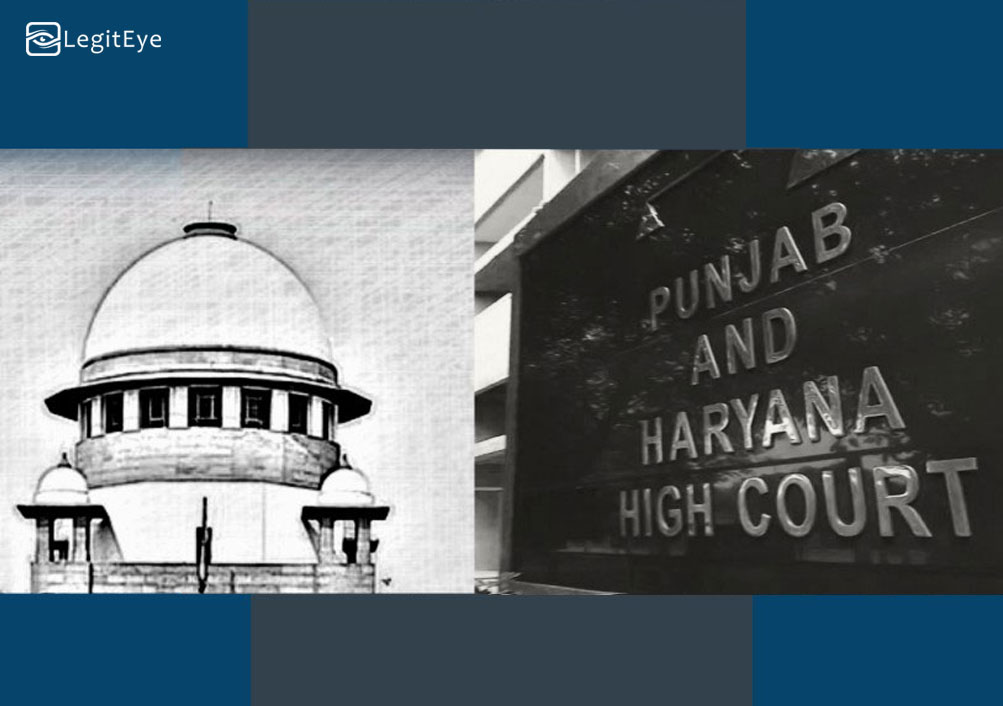Govt accommodation is meant for serving officials, not for retirees as benevolence and distribution of largesse: Supreme Court

Read Judgement: Union of India & Anr. vs Onkar Nath Dhar
LE Staff
New Delhi, August 13, 2021: The Supreme Court has ruled that the right to shelter does not mean the right to government accommodation, as it is meant for serving officers and officials and not for retirees as a benevolence and distribution of largesse.
A Division Bench of Justice Hemant Gupta and Justice A.S. Bopanna observed that government accommodation is meant for the serving government employees to facilitate the discharge of their duties, and is not meant for the retirees.
The Apex Court said that in the absence of any policy of allotment of government accommodation to a retired government servant, who may be victim of terrorism, the order passed by the Punjab & Haryana High Court calling accommodation to the retirees is wholly arbitrary and irrational being at the cost of serving Officers.
These observations came pursuant to a decision of a Single Bench keeping eviction of Respondent (Dhar) at abeyance observing that it was not possible for Dhar to return to his own State of Jammu and Kashmir and henceforth putting the appellants at liberty to provide alternative accommodation to Dhar on nominal licence fee in Faridabad, which was affirmed by the Division Bench of the High Court of Punjab & Haryana.
Dhar, a Kashmiri migrant, shifted to Jammu in 1989 or so, and was transferred to the office of the Intelligence Bureau in Delhi. Later he was transferred to Faridabad where he was allotted a government accommodation. On attaining the age of superannuation from service, he gave representation to allow him to retain the government accommodation, which was allowed for another one year. Dhar further submitted another representation seeking retention of the house allotted to him on a nominal licence fee till the circumstances prevailing in Jammu & Kashmir improve and the Government makes it possible for him to return to his native place.
Later, Dhar was served with a notice under the Public Premises (Eviction of Unauthorized Occupant) Act, 1971 for eviction. However, the same was stayed by the ADJ, Delhi. An objection was raised of territorial jurisdiction of the Delhi Court. Subsequently, the Single Judge of High Court allowed his request for accommodation, which stood confirmed by the Division Bench of the High Court of Punjab & Haryana.
The Apex Court observed that the Central Government would be free to frame a rehabilitation scheme specifically for such retired employees like the respondents and in such a scheme, it can specify the terms and conditions on which such persons would be entitled to rehabilitate/alternate residence, which may include the term that these respondents or their family members do not have any residence in any part of the country.
At the same time, the Apex Court made it clear that it would be open to the Government to specify the nature of accommodation to which such retired Government servants would be entitled to or the place where they would be rehabilitated which may not necessarily be in Delhi but can be even in the NCR region.
After the scheme is framed, the cases of the respondents can be scrutinized in terms of that scheme and those not found eligible for rehabilitation in terms thereof can be ousted from the present accommodation, added the Top Court.
Justice Gupta highlighted that the basic question to be determined is whether the allotment given to an employee was on out-of-turn basis or not. In case it was to be so, it is apparent that unless an exception is made, the allottee has neither the right to stay, nor the right to occupy the premises.
“We hope that coming years would not see any scam or misuse of power in making allotments of government quarters. The trust which is reposed in this context on high public functionaries would be discharged, we are sure, only to advance the object of providing of suitable conditions of work to government employees so that the Government is run on even keel; and shelter, which is a very pressing necessity of any human being, would not come to be denied if the same is otherwise due to the incumbent,” opined the Apex Court.
Justice Gupta went on to observe that it is unfortunate that the employees, officers, representatives of people and other high dignitaries continue to stay in the residential accommodation provided by the Government of India though they are no longer entitled to such accommodation.
Reiterating that the unauthorized occupants must recollect that rights and duties are correlative as the rights of one person entail the duties of another person similarly the duty of one person entails the rights of another person, Justice Gupta said that the Government accommodation could not have been allotted to a person who had demitted office.
The Top Court therefore concluded that the order of the Punjab & Haryana High Court is erroneous on the basis of compassion showed to displaced persons on account of terrorist activities in the State.
“The compassion howsoever genuine does not give a right to a retired person from continuing to occupy a government accommodation,” the Bench said. It added that such directions of the Punjab & Haryana HC is de hors any policy of allotting accommodation to the migrants under the guise of the right to shelter which is clearly in excess of jurisdiction vested with the Courts.
Sign up for our weekly newsletter to stay up to date on our product, events featured blog, special offer and all of the exciting things that take place here at Legitquest.




Add a Comment